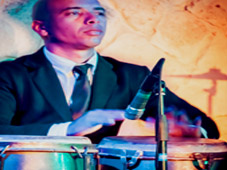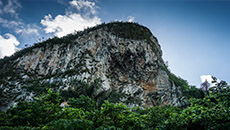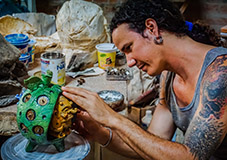Cuba Entry Requirements:
Fully vaccinated travelers must provide valid proof of vaccination.
Fully vaccinated travelers are not required to have a negative COVID-19 test result before traveling to Cuba.
Travelers fully vaccinated with mixed vaccines are allowed to enter Cuba.
Unvaccinated travelers must have proof of a negative COVID-19 PCR test result. The test must be taken at an accredited testing center a maximum of 72 hours before departure to Cuba.
Travelers are required to have valid health insurance with COVID-19 coverage. This insurance should be included in the cost of your flight ticket, and is also available for purchase at the Havana Airport (the cost is $30 USD).
All travelers must present a completed health declaration form to immigration on arrival in Cuba. This form will be provided by your airline, or you can download it HERE.
Temperature screening is required for all travelers on arrival in Cuba.
Travelers will be randomly selected to take a COVID-19 PCR test on arrival in Cuba.
No quarantine is required.
Travelers must wear masks at the airport and on your tour bus. Masks are mandatory in all indoor public places in Cuba.
We strongly suggest considering wearing a mask in crowded outdoor settings and for activities with close contact with others.
As per the CDC’s guidelines, choose masks that have 2 or more layers of washable, breathable fabric. Masks should completely cover your nose and mouth, and fit snugly against the sides of your face and don’t have gaps. Masks should also have a nose wire to prevent air from leaking out of the top of the mask.
IMPORTANT: Please bring your own supply of masks, soap, hand sanitizer and disinfectant wipes as these items are in short supply in Cuba.
Flying out of a US airport:
U.S. federal law mandates that you wear a face covering at all times while indoors at the airport and on board your flight, regardless of vaccination status.
You should bring your own face covering to use while traveling.
During your flight your face covering must be worn and visible at all times, including if you plan to sleep. You can briefly lower or remove your face covering while actively eating, drinking or taking oral medication, but it must be worn between bites and sips.
Face shields may be worn in addition to a mask, but face shields may not be worn instead of a mask.
Vented masks and bandanas are not permitted.
IMPORTANT: Processing times at the airports are longer due to additional COVID-related requirements. We strongly suggest arriving to the airport earlier than usual.
Flying out of a Canadian airport:
The government of Canada mandates that all travelers aged 12 and older departing from Canadian airports need to be fully vaccinated, 14 days prior to departure.
During check-in, you will be asked to make a declaration confirming you have a proof of vaccination.
Re-entry to the U.S.:
Before boarding your flight back to the United States, vaccinated U.S. citizens and legal permanent residents must show proof of being fully vaccinated against COVID-19.
You must also show proof of negative test taken 3 days before departure from Havana or proof of recovery from COVID-19. PCR test will be available at hotels and international clinics in Cuba at an extra cost of $30 USD.
If you are NOT fully vaccinated, you must show proof of negative COVID-19 test result taken no more than 1 day before travel.
The U.S. government also requires all passengers to complete and sign the Centers for Disease Control and Prevention (CDC) attestation form confirming either a negative COVID-19 test result, or clearance for travel after recovery from COVID-19. This form will be provided by your airline.
All passengers flying to the United States are also required to provide complete and accurate contact information to help prevent the spread of COVID-19. You must provide this information to your airline within 72 hours of your departure from Havana.
After arrival in the United States, CDC recommends all travelers to get tested with a COVID-19 viral test 3-5 days after travel.
Re-entry to Canada:
Only unvaccinated Canadian citizens are allowed to enter Canada at this time. If you are unvaccinated and are not a Canadian citizen or a permanent resident, you will not be permitted to enter the country.
All travelers, regardless of citizenship or vaccination status, must also provide proof of a COVID-19 negative molecular test result to enter Canada.
Rapid antigen tests aren't accepted.
Hotels:
The hotels we stay at in Cuba practice enhanced safety measures and hygiene protocols, such as more frequent cleaning and disinfecting of all areas.
Dedicated Tour Bus:
Your tour bus will be thoroughly cleaned each day, and high-touch areas will be wiped down throughout the day.
Travel Waiver:
Please click HERE to download our Covid-19 Travel Waiver. Kindly fill it out, sign and return to us using one of the following methods.
By Email to: info@authenticubatours.com
By Fax to: 1-647-342-3622

Bring adequate supplies of all medications in their original containers, clearly labeled. Carry a signed, dated letter from the primary physician describing all medical conditions and listing all medications, including generic names. If carrying syringes or needles, be sure to carry a physician's letter documenting their medical necessity.
Pack all medications in hand luggage. Carry a duplicate supply in the checked luggage. If you wear glasses or contacts, bring an extra pair. If you have significant allergies or chronic medical problems, wear a medical alert bracelet.
Make sure your health insurance covers you for medical expenses abroad. If not, supplemental insurance for overseas coverage, including possible evacuation, should be seriously considered. If illness occurs while abroad, medical expenses including evacuation may run to tens of thousands of dollars.
Bring your insurance card, claim forms, and any other relevant insurance documents. Before departure, determine whether your insurance plan will make payments directly to providers or reimburse you later for overseas health expenditures.
Pack a personal medical kit, customized for your trip (see description). Take appropriate measures to prevent motion sickness and jet lag , discussed elsewhere. On long flights, be sure to walk around the cabin, contract your leg muscles periodically, and drink plenty of fluids to prevent blood clots in the legs. For those at high risk for blood clots, consider wearing compression stockings.
Avoid contact with dogs and other animals. If an animal bites or scratches you, clean the wound with large amounts of soap and water and contact local health authorities immediately. Wear sun block regularly when needed. Use condoms for all sexual encounters. Ride only in motor vehicles with seat belts. Do not ride on motorcycles.

Travellers' diarrhea is the most common travel-related ailment. The cornerstone of prevention is food and water precautions, as outlined below.
If diarrhea is severe or bloody, or if fever occurs with shaking chills, or if abdominal pain becomes marked, or if diarrhea persists for more than 24 hours, medical attention should be sought immediately.
Most cases of travelers' diarrhea are mild and do not require either antibiotics or antidiarrheal drugs. Adequate fluid intake is essential.
It is recommended to bring along an antibiotic and an antidiarrheal drug with you. However, you must always consult a doctor before taking any medication.

Food and water precautions
Do not drink tap water unless it has been boiled, filtered, or chemically disinfected. Do not drink unbottled beverages or drinks with ice. Do not eat fruits or vegetables unless they have been peeled or cooked. Avoid cooked foods that are no longer piping hot. Cooked foods that have been left at room temperature are particularly hazardous.
Avoid unpasteurized milk and any products that might have been made from unpasteurized milk, such as ice cream. Avoid food and beverages obtained from street vendors.
Do not eat raw or undercooked meat or fish, including ceviche. Some types of fish may contain poisonous biotoxins even when cooked. Barracuda in particular should never be eaten. Other fish that may contain toxins include red snapper, grouper, amberjack, sea bass, and a large number of tropical reef fish.
Please, do notice that in our trips, all included meals are served in places that meet food and water precautions.

It's important that you receive the most accurate and up-to-date immunization and travel health information for the region you will be visiting. The only one qualified to provide you with this advice is your family physician or a specialist from a Travel Health clinic.
We've provided links to a number of websites that contain excellent background information related to travel health issues. Nevertheless these websites are no substitute for a personal consultation with a qualified medical professional.
The National Centre for Disease Control
Health Canada's Information for Travellers
World Health Organization (WHO)
The wonders of travel can often be disrupted by the annoyances of getting ill as you adjust to new climates, living conditions and cultures. For this reason, we've put together a handy guide on staying healthy while you travel.
Travel opens up a wonderful world of opportunities and experiences that you would never have a chance to appreciate by staying at home. However, with that, your body may be exposed to a wide range of bugs, viruses and other germs it may not have immunity to. Good heath practices are key to enjoying a safe and healthy tour.
Always follow the advise of your medical practitioner. Plan a visit to your local travel clinic several months prior to your trip to ensure any shots you may need have time to become effective.
While on tour, there are many things you can do to help you stay healthy, and enjoying the tour to the fullest.
Wash your hands and/or use hand sanitizer OFTEN. Think about how many common surfaces you touch in the course of a day (riding a public transit system, door handles etc) where viruses and germs can lie.
Avoid touching your eyes, nose and mouth. If you blow your nose, wash your hands before touching your mouth or eyes. If you cough, wash your hands before touching your eyes or nose. If you need to rub your eyes try to wash your hands first. The key here is that it is possible to give a virus back to yourself.
It's okay to blow your nose. It is your body's way of cleaning debris and foreign objects (viruses and/or its byproducts) out of your system.
Cover your mouth and nose with a tissue when you cough or sneeze. Throw your tissues away immediately. If you don't have any tissue, sneeze into your upper sleeve, not your hands.
Take vitamins. It is always good to take vitamins, but especially when you are sick. Whatever vitamins you take, remember to also take Vitamin 'C' as it helps strengthen your immune system.
Try to limit contact with people who are sick if you can. Wash your hands afterwards if you had physical contact with them (for example shaking hands).
Eat healthy, energizing food. Your body always needs fuel but when you're sick a lot of your bodies energy is devoted to your immune system.

Insect and tick protection
Wear long sleeves, long pants, hats and shoes (rather than sandals). Apply insect repellents to exposed skin (but not to the eyes, mouth, or open wounds).
Don't sleep with the window open unless there is a screen. If sleeping outdoors or in an accomodation that allows entry of mosquitoes, use a bed net, preferably impregnated with insect repellent, with edges tucked in under the mattress. The mesh size should be less than 1.5 mm. If the sleeping area is not otherwise protected, use a mosquito coil, which fills the room with
insecticide through the night.

For travel health services, many travelers go to:
Clinica Central Cira Garcia (Calle 20 No. 4101 esquina Ave 41, Playa, Ciudad de la Habana; tel. 537-2042811 to 14)



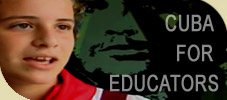
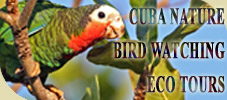
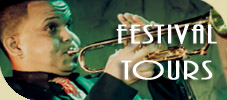
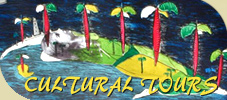
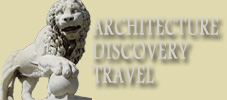

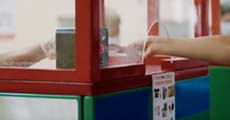 Authentic Cuba Travel® Lifetime Deposits offers any of our tour participants forced to delay a departure to retain their deposit for use at a later date at no extra charge and NO QUESTIONS ASKED.
Authentic Cuba Travel® Lifetime Deposits offers any of our tour participants forced to delay a departure to retain their deposit for use at a later date at no extra charge and NO QUESTIONS ASKED.
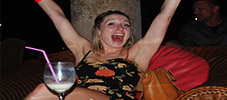
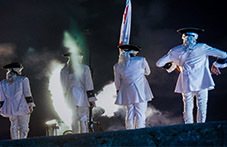 For Authentic Cuba Travel® safety always comes first. Constant on-tour safety expertise & on-site assistance. Your safety is our top priority.
For Authentic Cuba Travel® safety always comes first. Constant on-tour safety expertise & on-site assistance. Your safety is our top priority.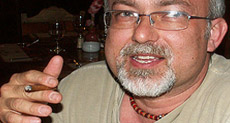 Nobody knows Cuba as Authentic Cuba Travel®! Our staff is fluent in English and Spanish and have lived and worked in Cuba Travel Industry for over 10 years minimun. Guarantee!
Nobody knows Cuba as Authentic Cuba Travel®! Our staff is fluent in English and Spanish and have lived and worked in Cuba Travel Industry for over 10 years minimun. Guarantee!
 Sustainable tourism is where our Cuba tour participants can enjoy their holiday and at the same time respect the authentic culture of local people and also respect the environment.
Sustainable tourism is where our Cuba tour participants can enjoy their holiday and at the same time respect the authentic culture of local people and also respect the environment.
